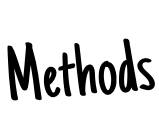|
|
|
|
An introduction to quantitative and qualitative data, primary and secondary sources, sampling concepts and techniques. |
|
|
Commonsense and sociological forms of knowledge; The Hypothetico- |
|
|
Very short film designed to introduce students to ideas like why we need research methods, the range of different methods available and, most importantly, how to apply our knowledge of methods to resolve different kinds of research problems. |
|
|
An overview of questionnaires, content analysis and experiments (laboratory and field). |
|
|
An overview of ethnography, interviews, participant and non- |
|
|
Introduction to types of secondary methods; the evaluation of secondary sources; overview of official statistics; historical and personal documents. |
|
|
|
Ethical, practical and methodological reasons for the infrequent use of experimentation in sociological research; the concepts of experimental control, dependent and independent variables; causality and correlation; the problems involved in the conduct and use of sociological experiments. |
|
Philip Zimbardo’s Stanford Prison Experiment (SPE) is probably one of the best- |
|
|
The concept of empathy and how it relates to Participant Observation as a method of data collection; problems of Participant Observation in context; the concept of an "observer effect". |
|
|
Notes covering different types of Participant Observation (overt and covert), with a focus on discussion of their respective advantages and disadvantages. |
|
|
Interesting document written by Mary Morgan that provides a comprehensive overview of research methods (and methodology) at AS level. |
|
|
Of Methods and Methodology |
Online Notes covering the following areas: Practical Research Considerations |
|
Online Flipbook covering: primary and secondary methods; qualitative and quantitative data. |
|
|
|
Sudhir Venkatesh's "Gang Leader for a Day" study is used as a base for the outline and evaluation of key methodological concepts in overt participant observation. These include: |
|
This complete textbook chapter taken from the 1st edition of AS Sociology for AQA covers: 1. Sources and types of data 2. The research process: types of sampling. 3. The research process: primary and secondary methods. 4. Research methodology: positivism and interpretivism. 5. Practical, ethical and theoretical research considerations. |
|
|
|
This complete textbook chapter taken from the 2nd edition of AS Sociology for AQA covers: 1. The distinction between primary and secondary data, and between quantitative and qualitative data. 2. Sources of data, including questionnaires, interviews, participant and non- 3. The relationship between positivism, interpretivism and sociological methods; the nature of social facts. 4. Quantitative and qualitative methods of research; their strengths and limitations; research design. 5. The theoretical, practical and ethical considerations influencing choice of topic, choice of method(s) and the conduct of research. |
|
The four chapters in this series, of which this is the first, are taken from the published version of OCR Sociology for AS (2012). Together they outline the various factors - |
|
|
The second chapter taken from the published version of OCR Sociology for AS (2012) outlines and evaluates a range of primary and secondary quantitative research methods. |
|
|
The third chapter taken from the published version of OCR Sociology for AS (2012) outlines and evaluates a range of primary and secondary qualitative research methods. |
|
|
The fourth chapter taken from the published version of OCR Sociology for AS (2012) examines various aspects of triangulation, practical, ethical and theoretical research considerations. |
|


